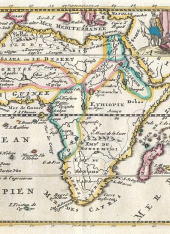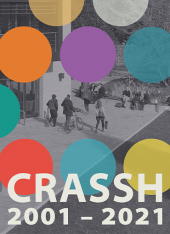This interdisciplinary conference 'Those Who Leave and Those who Stay: The Consequences of Emigration for Sending Countries' aims to bring together researchers from different fields – political science, education, anthropology, history, political economy, and sociology, among others – who explore the socio-political and economic consequences of emigration for sending countries, regions and communities. The field of international migration is predominantly focused on the topic of immigration, debating its causes, the legal challenges it poses, and the way it has been politicised in receiving countries, among other topics of scholarly and political importance.
Yet, there has been much less focus on 'those who stay', that is on how emigration transforms the places and people who are left behind. The current conference aims to open a broader conversation on the consequences of global flows of labour and explore them from multiple, yet complementing disciplinary perspectives. We plan to organise also a panel with civil society activists and practitioners looking at this issue from a policy perspective.
Contributions from across the globe are welcome since we want to have a conversation that is inclusive of different geographic backgrounds. The conference will be held online in January 2022 and will be without any registration fee in order to make it possible for scholars from different parts of the world to participate, regardless of pandemic-related travel restrictions.
Contributions are welcome for each of the conference’s four panels:
Panels 1: Emigration and Political Participation in Sending Countries
Panel 2: Emigration, Education and Care: The Gendered Consequences of Emigration
Panel 3: Emigration, Immigration and the Reproduction of Social Inequality across countries and regions
Panel 4: Fractured Biographies: the Consequences of Emigration for the personal biographies of those who stay
Keynote speakers:
Prof Dr Susan Robertson, Professor of Education at the Department of Education, University of Cambridge
Dr Olga Onuch, Senior Lecturer in Politics at the University of Manchester, Principle Investigator of the Mobilise Project
This event is part of CRASSH's 20th anniversary programme on the theme of 'Global Conversations'.

This interdisciplinary conference aims to bring together researchers from different fields – political science, education, anthropology, history, political economy, and sociology, among others – who explore the socio-political and economic consequences of emigration for sending countries, regions and communities.
Some of the questions that we would like to explore include, but are not limited to:
- What are the consequences of emigration for political participation in sending countries? Has ‘exit’ hindered ‘voice’ at home? Has emigration diminished or rather transformed protest mobilization and electoral participation in sending countries?
- Research on the migration-social reproduction nexus has been gaining more and more prominence in recent years. While many accounts are focused on female migrants’ role in host societies’ infrastructures and structures of care, less attention has been paid to the effects these circuits of migration have on sending countries, regions, and communities. We are interested in deepening these conversations with regards to the gendered consequences of emigration for structures and infrastructures of social reproduction at home. How do educational mobility, seasonal work and long-term emigration affect economies of care? What are the individual and collective challenges that the gendered character of emigration poses?
- How does emigration counter or feed into existing inequalities between countries, but also between regions and cities? What has been the interplay between practices and discourses of emigration and immigration in our inequality-ridden geographies? Finally, what have been the economic consequences of emigration for sending countries? How has emigration affected the Welfare State, taxation policies and skills distribution in sending countries?
- The relationship between migration and kinship enjoys a long scholarly tradition and attention. How does the emigration of family members affect the personal and social biographies of those left behind? How do those who stay behind justify their choice: to emigrate or not to emigrate. To what extent is it useful to talk about emigration as a ‘personal choice’?
If you are interested in participating in the conference, send your 300-words abstract by 20 September 2021 to the following email address: consequencesofemigration@gmail.com.










